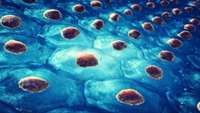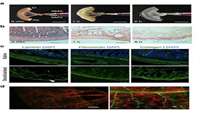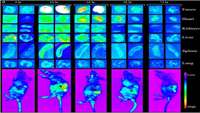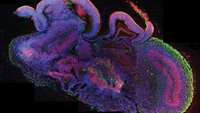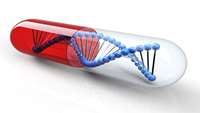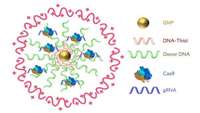New Stem Cell Line Could Open New Doors in Medical Research and Treatment
Researchers from the Wellcome Trust Sanger Institute in the U.K. and their collaborators have developed what could potentially be a tabula rasa, or clean slate, for stem cells, which could allow any type of cells to grow and develop. This breakthrough study is published today in the journal Nature, and it shows how researchers, for the first time, created what’s known as Expanded Potential Stem Cells (EPSCs) in mice.
Bioengineering of functional human induced pluripotent stem cell-derived intestinal grafts
Patients with short bowel syndrome lack sufficient functional intestine to sustain themselves with enteral intake alone. Transplantable vascularized bioengineered intestine could restore nutrient absorption.
Haplobank – a biobank of reversible mutant embryonic stem cells
Genetic screens have revolutionized our understanding of biological processes and disease mechanisms. Recent technical advances have broadened the available approaches for disrupting gene function in a cell population prior to screening, from chemical and insertional mutagenesis to RNA interference, and, most recently, CRISPR-mediated genome editing.
CD73 specific siRNA loaded chitosan lactate nanoparticles potentiate the antitumor effect of a dendritic cell vaccine in 4T1 breast cancer bearing mice
The efficacy of conventional anti-tumor immunotherapeutic approaches is markedly affected by the immunosuppressive microenvironment of tumor. Since adenosine is one of the main orchestra leaders in immunosuppression symphony of tumor, targeting its producing molecules such as CD73 can help to achieve a better clinical outcome following conventional cancer immunotherapeutic approaches
Mini-kidney organoids reveal renal disease secrets
Polycystic kidney disease affects 12 million people. Until recently, scientists have been unable to recreate the progression of this human disease in a laboratory setting.
12 Amazing Anti-Aging Startups Chasing Eternal Youth
When you were a child you might have a carefree attitude towards your health and life. Over time, with increasing age suddenly a patch of fine lines on your face may attract your attention and starts troubling you
FDA panel unanimously votes to approve gene therapy for blindness
Retinal dystrophy due to mutation of the RPE65 gene causes severe visual impairment beginning in infancy. As it progresses, patients experience gradual loss of peripheral vision and central vision. Eventually, the disease leads to blindness.
New microcapsules to enhance the efficiency of genome-editing
Researchers from Tomsk Polytechnic University jointly with their colleagues from St. Petersburg, Hamburg and London have found that polymer and hybrid silica-coated microcapsules are more efficient in genome-editing when applying CRISPR-Cas9. In the future, this joint development will significantly simplify and increase the efficiency of genome editing, which can treat previously irremediable inherited diseases such as Alzheimers, hemophilia and many others.
CRISPR Nanoparticles Repair Duchenne Muscular Dystrophy Gene
Scientists have developed a gold nanoparticle technology for delivering the CRISPR/Cas9 gene-editing system to cells that, when tested in the mdx mouse model of Duchenne muscular dystrophy (DMD), repaired the faulty DMD gene, leading to improved strength and agility and reduced fibrosis
TEDCO awards $1 million for stem cell projects
TEDCO, the Maryland Technology Development Corporation, awarded four recipients more than $1 million for stem cell research for validation and commercialization of products.


